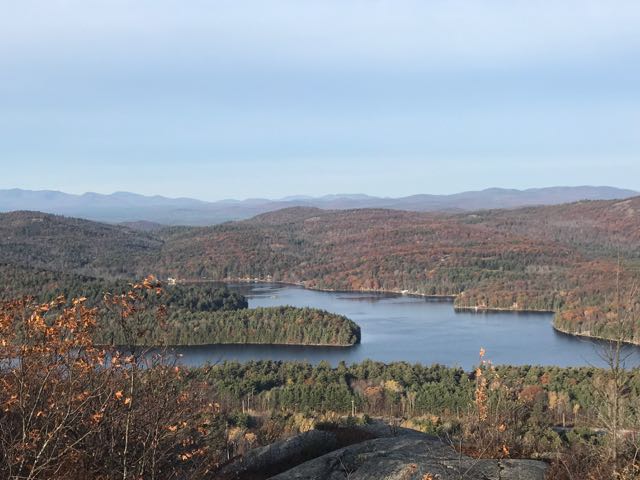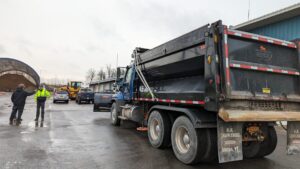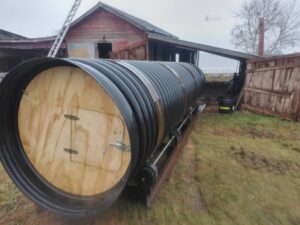LAKE GEORGE — Road salt, an often problematic material for the health of Lake George, will be used less under a pilot program that will run this winter.
The state Department of Transportation announced the new program Wednesday, which includes a number of practices meant to limit the amount of salt used. It will cover an approximately 17-mile stretch of Route 9N from the village of Lake George to the town of Bolton. The program is also being tested on Mirror Lake in Essex County.
“At the Department of Transportation, safety is our highest priority, and salt has proven to be one of the most effective ways in maintaining a safe highway for the traveling public,” said Acting DOT Commissioner Paul Karas, in a release. “At the same time, we understand that there is a delicate balance between protecting the Adirondacks and maintaining safe highways for motorists.”
Salt has been an increasing problem in Lake George, negatively affecting water quality, roadside vegetation and aquatic species, besides corroding people’s cars. A 2014 study by the Darrin Fresh Water Institute showed over 30 years a nearly three-fold increase in the level of salt. The Lake George Association’s Citizen Science Lake Assessment Program, too, has shown increases in salt and temperature readings.
Dennis Dickinson, town supervisor of Lake George, has pushed for salt abatement along with many other local leaders and lake organizations.
“(We’ve been) frustrated by the state’s lackluster response to salt abatement and are pleased in the last few weeks and months that they have been stepping up to the salt abatement program, especially around the lake,” he said in a phone interview Wednesday.
Some of the practices highlighted in the pilot program include using brine for pre-storm anti-icing, using treated salt, using a plow truck with blade technologies to mechanically remove more ice and snow and using automatic vehicle location equipment that tracks salt application rates and calibrates salt-spreading equipment.
The state will also conduct more monitoring of salt use, work with partners to monitor surface and groundwater quality and evaluate abrasives and abrasive mixes. The state will consider cutting back trees in specific locations to allow more sun to melt snow and ice on otherwise shaded roadways. Signs will be placed along the areas of the pilot program to alert motorists.
The Transportation Department, the Department of Environmental Conservation and Department of Health have established a working group that includes local municipalities and organizations, such as AdkAction and The Fund for Lake George-Lake George Waterkeeper, to evaluate the effectiveness of the pilot programs. Should they be successful, the practices could be used statewide.
The Lake George Association said it has helped local public works departments use some of these best management practices already. It has also helped develop a model road management plan it hopes all the towns in the watershed will adopt.
“We look forward to seeing the results of the state’s pilot program to reduce its salt application in the Lake George watershed,” said the association’s executive director, Walt Lender, in a statement to The Post-Star. “It is a problem the LGA has been working on for a decade.”
For Dickinson, it’s a start. Ultimately he’d like to see Route 9N rebuilt, considering its storm water infrastructure is outdated and deteriorating. Storm water runoff can carry salt into the lake, along with other unwanted chemicals and nutrients.
Reporter Gwendolyn Craig can be reached at (518) 742-3238 or [email protected]. Follow her on Twitter @gwendolynnn1.





